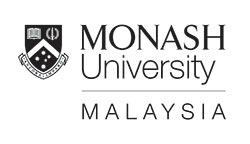| Course Description | Electrical and computer systems engineering is an extremely diverse field, taking in biomedical, computer systems, electronics, electrical power engineering, robotics and telecommunications. This is a field that evolves rapidly, with new technologies and techniques being patented every day.
Electrical and computer systems engineering spans all scales of electrical and electronic engineering, from the fundamentals of circuits, electronic signals and signal processing; through digital electronics and systems on chips; to the designs of large scale power and telecommunication systems.
As an electrical and computer systems engineer you could work locally or internationally, in a wide range of industries, including power generation, industrial and power electronics, automation systems, computer programming, robotics, health care, and water and energy systems.
Many Monash graduates work in large public and private telecommunications, manufacturing and electrical power companies. Others work for defence and intelligence organisations.
You will also be prepared for careers in other industries such as online ticketing, banking and finance - or organisations that need to create, store, encode and transmit data or manage complex systems.
|
|---|
| Curriculum | LEVEL ONE
Core Units
- Computing for engineers
- Mathematics for engineering
- Engineering design A: lighter, faster, stronger
- Engineering design B: cleaner, safer, smarter
- Design C: engineering mobile applications
General Studies Unit
- Leadership and Innovation
Elective Units
Select two units from:
- Chemistry I advanced
- Physics for engineering
- Mechanics of fluids (level two)
- Telecommunications (level two)
- Digital systems (level two)
- Introduction to Systems Engineering (level two)
Total: 48 points
The first three levels of the course provide a broad foundation in Electrical and Computer Systems Engineering and in sciences such as physics, chemistry and mathematics. At levels three and four, students complete core units and a management unit and are able to choose from a large number of electives which build upon material studied at earlier levels. Electives comprise approximately 37 per cent of levels three and four.
The design and thesis projects at level three and four build self-reliance and planning capabilities in both individual and team-based environments. Projects are often related closely to the department’s exceptionally strong research and collaborative industry programs within its research centres.
|
|---|
| Entry Requirements | To enter Monash University, students must satisfy particular academic, English language and age requirements.
Entry scores
You will need the following entry scores for the Bachelor of Electrical and Computer Systems Engineering (Honours):
| Qualification |
Score |
| Commencing Monash University Foundation Year (MUFY) in 2019/2020* |
76.25%* |
| A Level GCE |
11 |
| Pearson International Advanced Level |
12 |
| ATAR |
87.5 |
| Hong Kong Diploma of Secondary Education |
20 |
| Indian School Certificate |
76% |
| All India Senior School Certificate |
81% |
| SMA3, Indonesia |
Please refer to https://priorstudy.monash.edu/prior-study/ to find out the entry score |
| International Baccalaureate Diploma Program (IB Diploma Program) |
31 |
| STPM, Malaysia |
9.4 |
| UEC, Malaysia |
3 |
| Program Matrikulasi (Matriculation Program), Malaysia |
3.17 |
| Ontario Secondary School Diploma |
86.3% |
| Sri Lankan General Certificate of Education (Advanced Level) |
12 |
| High School Certificate, Vietnam |
8.49 |
| UNSW Foundation Studies |
8.25 |
| Foundation in Science and Technology, Sunway College |
77.5% |
| Monash College Diploma Part 1 ** |
80%** |
| Monash College Diploma Part 2 ** |
60%** |
|
|---|


























